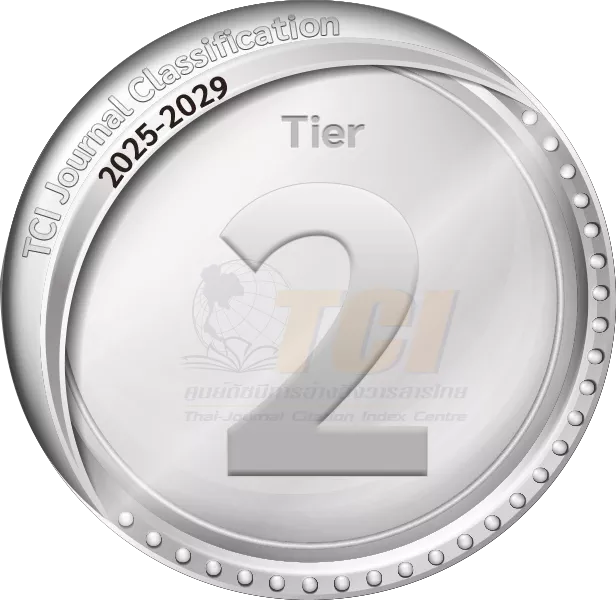Key Perspectives to Enhance Employee Retention: A Study on Leadership, Compensation, Career Development, and Work Environment at ABC Company
DOI:
https://doi.org/10.14456/abacodijournal.2025.7Keywords:
Employee Retention, Leadership Skill, Career Development, Employee Engagement, Benefits Package, CompensationAbstract
Employee retention is a critical issue for many organizations. This study focuses on exploring and developing a strategic plan for enhancing employee retention of the current and former employees of ABC Company in Thailand. The researchers collected and analyzed data from both current and former employees of ABC company, a legal service medium-sized business, by interviewing 7 organizational members. The researchers applied a qualitative method by creating interview questions and conducting interviews with seven participants, selected through purposive sampling, which allowed for a diverse representation of current and former employees from different departments within ABC Company. The data collected from these interviews were then analyzed using thematic content analysis, which helped identify key themes related to leadership, compensation, career development, and work environment. Employees reported dissatisfaction with leadership based on favoritism and a lack of advocacy. To address this, leadership development programs focused on equitable treatment and employee-centric approaches are recommended. Compensation, particularly health benefits and bonuses, was found to be inadequate, suggesting a need for a comprehensive review and improvement of the benefits package. Career development opportunities were limited, with unclear promotion paths and insufficient mentoring. Implementing structured career development programs and clear advancement paths is crucial. Lastly, the toxic work environment, driven by office politics and poor communication, requires a cultural shift toward transparency and employee engagement. Addressing these areas can significantly improve employee retention.
References
Allen, D. G., Shore, L. M., & Griffeth, R. W. (2003). The role of perceived organizational support and supportive human resource practices in the turnover process. Journal of Management, 29(1), 99-118.
Armstrong, M., & Taylor, S. (2014). Armstrong’s Handbook of Human Resource Management Practice. Kogan Page Publishers.
Arnold, J. (1996). The psychological contract: A concept in need of closer scrutiny?. European Journal of Work and Organizational Psychology, 5(4), 511-520.
Barnett, R. C., & Bradley, G. (2007). The impact of organizational support for career development on career satisfaction. Career Development International, 12(7), 617-636.
Barney, N., & Pratt, M. K. (2023, March 22). Leadership. TechTarget.
https://www.techtarget.com/searchcio/definition/leadership
Bass, B. M., & Riggio, R. E. (2006). Transformational leadership (2nd ed.). Lawrence Erlbaum Associates.
Batt, R., & Valcour, P. M. (2003). Human resources practices as predictors of work-family outcomes and employee turnover. Industrial Relations: A Journal of Economy and Society, 42(2), 189-220.
Chen, Z., & Wu, W. (2020). The impact of transformational leadership on turnover intention: The mediating role of employee innovation. Journal of Management Science and Engineering, 5(1), 59-70.
Das, B., & Baruah, M. (2013). Employee retention: A review of literature. Journal of Business and Management, 14(2), 8-16.
Dirks, K. T., & Ferrin, D. L. (2002). Trust in leadership: Meta-analytic findings and implications for research and practice. Journal of Applied Psychology, 87(4), 611-628
Eisenberger, R., Huntington, R., Hutchison, S., & Sowa, D. (1986). Perceived organizational support. Journal of Applied Psychology, 71(3), 500-507.
Gerhart, B., & Fang, M. (2015). Pay, intrinsic motivation, extrinsic motivation, performance, and creativity in the workplace: Revisiting long-held beliefs. Annual Review of Organizational Psychology and Organizational Behavior, 2(1), 489-521
Griffeth, R. W., Hom, P. W., & Gaertner, S. (2000). A meta-analysis of antecedents and correlates of employee turnover: Update, moderator tests, and research implications for the next millennium. Journal of Management, 26(3), 463-488
Hausknecht, J. P., Rodda, J., & Howard, M. J. (2009). Targeted employee retention: Performance-based and job-related differences in reported reasons for staying. Human Resource Management, 48(2), 269-288
Kalleberg, A. L. (1977). Work values and job rewards: A theory of job satisfaction. American Sociological Review, 42(1), 124-143.
Kossek, E. E., & Ozeki, C. (1998). Work-family conflict, policies, and the job-life satisfaction relationship: A review and directions for organizational behavior-human resources research. Journal of Applied Psychology, 83(2), 139-149.
Kouzes, J. M., & Posner, B. Z. (2017). The Leadership Challenge: How to Make Extraordinary Things Happen in Organizations (6th ed.). Wiley
Kumar, M. (2021). Harnessing Sorghum Landraces to Breed High-Yielding, Grain Mold-Tolerant Cultivars with High Protein for Drought-Prone Environments. Front. Plant Science, 12, 659874. https://doi:10.3389/fpls.2021.659874
Lee, J., & Liu, C. (2022). The role of workplace bullying and job stress on turnover intention: A study on the hospitality industry. International Journal of Hospitality Management, 95, 102955.
Milkovich, G. T., Newman, J. M., & Gerhart, B. (2013). Compensation (11th ed.). McGraw- Hill/Irwin
Nguyen, T. N. (2020). VVC: A Vietnamese Corpus with Metadata: The 1st Conference of Linguistics and Applied Areas. University of Social Sciences and Humanities, Viet Nam National University.
Orduña, C. (2024). What is career development and why is it important?. Careerminds. https://careerminds.com/blog/what-is-career-development
Perez, M. (2023). Work environment: What it is, types, and importance. SMOWL. https://smowl.net/en/blog/work-environment/#:~:text=The%20work%20environmen t%20refers%20tocolleagues%20and%20the%20organizational%20culture
Raziq, A., & Maulabakhsh, R. (2015). Impact of working environment on job satisfaction. Engineering and Technology, 9(2), 161-172.
Sage. (2023). What is compensation?. Sage.
https://www.sage.com/en-us/blog/glossary/what-is-compensation
Stahl, G. K., Chua, C. H., Caligiuri, P., Cerdin, J.-L., & Taniguchi, M. (2012). Predictors of turnover intentions in learning-driven and demand-driven international assignments: The role of repatriation concerns, satisfaction with company support, and perceived career advancement opportunities. Human Resource Management, 51(5), 671-694.



